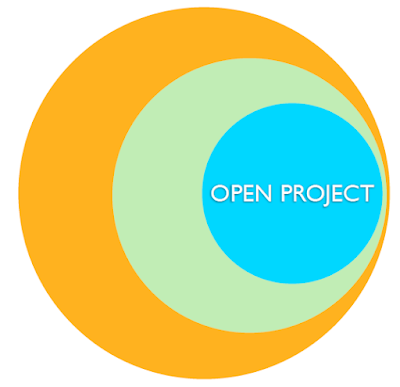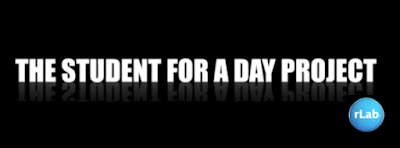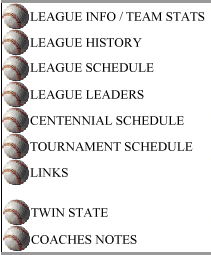
... and happy you tried ; )
Here's a list of of a few of larger projects I've worked on.
It's always been my passion to work with people to create innovation opportunities and solve problems. To my partners in crime herein, too many to list, my sincere thanks on helping build and support these initiatives.
___

Articles I've written for Edutopia.org, The George Lucas Education Foundation
___

For six years I served as President of VITA-Learn.org, a non-profit that leads teacher professional development in Vermont. I led efforts to restructure conferences toward collaboration, invite National innovators, introduced ½ day, full-day immersive workshops, and collaborative sessions. I helped build new websites for the organization, the conferences it offers and expand its social media presence. It was a privilege to emcee 14 conferences for VL, each with over 300 attendees. We had a lot of fun and along the way VITA-Learn achieved new records in customer attendance, membership gains, and customer satisfaction. I also served as the 'un-official' 'Entertainment Director,' and we did have some great parties ; )

___
These blog posts I wrote called 'What Are We Teaching and Why?' continue to stir up some good things in schools.
1. AP Classes
___
I designed and authored the award winning CTE Makeover Challenge Innovation Grant from the US Dept. of Education in 2016 for Burlington Technical Center to build an interdisciplinary Makerspace! Full details here.
___

Many thanks to US-Ignite and Mozilla.org for sponsoring me to attend #mozfest in London, England! Work continues ; )
___
I'm still working on a project called 'Open Project.' It's a way to get schools, colleges, and businesses to collaborate. I pitched it to the Amazon City on Cloud Innovation Challenge and finished in the top five Nationally (the top three were funded). It was an honor to get that far in the selection process though. The description in the link above is listed under Burlington School District where I was working at the time.
___
Sabbatical Across Seven Countries
Just one section of "Matt's outdoor classroom," Whangarei Heads School, New Zealand.
Photo by A. Provost
In 2013 I was nominated by peers to take a six-month sabbatical looking at innovative programs and leadership that fosters that culture in education. I traveled through the US, Canada, Italy, France, Germany, Austria and New Zealand, visiting 54 schools ranging from K-12, colleges, and universities and conducted over 300 interviews. I blogged for Edutopia throughout the trip and am (still) conjuring it all into a book.
___

Three projects:
1
I began creating a robust Help Desk and PD program with students at it's core in 1995 and mentored many since. Many folks have asked what strategies I've used along the way.
1
I began creating a robust Help Desk and PD program with students at it's core in 1995 and mentored many since. Many folks have asked what strategies I've used along the way.
Two guidelines:
- Student Help Desk and PD programs shouldn't be centered around busy work and basic tasks
- Keep students learning: Explore Instructional Design, Hardware and software skills, customer service skills, collaboration, peer training, and personal specialization choice is key to success.
To help explore ideas on integrating students into PD I wrote up an outline called T3: Technology, Training and Troubleshooting. It's written in Understanding by Design (UbD) format, and here it is, free for you to look at, modify and use. Your welcome to download it for better viewing.
Some ideas on how it could be used:
- A framework for a course to help students build IT and AT / Instructional Design skills.
- A course that trains students to work with exisisting Tech Departments, IT Integrationists, and Tech Directors in PD.
- Training material / resources for existing support and PD departments to pick ideas from.
- A course that uses real service tickets as learning models (highly recommended, and conjures real work for students)
- Or... all of the above.
The appendices have some tips on how to use the doc to work with students to build projects.
Here's a basic website format that you can grab from too. This site includes some great info on the 'Tools' and 'AT Support' pages.
2
2
What happens when teachers become students for a day?
What does the 'school schedule' look like from a student perspective?
I mentored students to design, organize, produce an 11 minute documentary that was republished nationally in Ed blogs, journals, and featured at conferences!
What does the 'school schedule' look like from a student perspective?
I mentored students to design, organize, produce an 11 minute documentary that was republished nationally in Ed blogs, journals, and featured at conferences!
This Link brings you to Vimeo where the video is posted. The video is 11 minutes and 2 seconds long… and well worth the trip.
3
Here's a sketch of work from 2005 - 2013 where students researched and proposed positive educational changes at their school. This link goes to the class website where I used to teach... but there's a link there to come back here as well.
___
A self-organizing system... the Tech Research Lab at Burr and Burton Academy: 2005-2013

The summary in this one has some length to it, but it was one hell of a project.
The rLab project I founded and developed at Burr and Burton Academy with students and peers was a groundbreaking initiative in project-based education and promotion of student voice which ran from 2005 - 2013. The work from this project has been shared at over 60 conferences and materials have been given to over 100 schools across the world.
Students were introduced to project-based education and then focused on building projects in their own field of study, publishing their work, networking with professional mentors and businesses in the community and a to develop a deep understanding of the possibilities and challenges that exist in education.
In all, it was an incredibly rewarding and challenging project that... was ahead of it's time in many ways. The changes it opened up in education in Vermont and abroad were significant, opening the door to many other similar projects and eventually Act 77 legislation in Vermont toward promoting personalized learning.
Mentoring over 100 personalized learning projects per semester, over 1000 in total and connecting them to over 3000 mentors globally, in a classroom setting was quite a challenge. We also archived each project so students could learn from and with peers. Projects grew exponentially in difficulty and complexity and simultaneously the Lab became a haven of sorts for students struggling in school. The appeal of studying what you love in an interdisciplinary way was proving immensely successful to inspire the passion to learn. As student needs grew, managing it by myself became more and more challenging. The most challenging variable, one that I was too accommodating foreign hindsight, was the push by administration to enter students in academic trouble entering at virtually any time during the semester. In one case, a student was admitted with three weeks left in the semester to 'start a project.' While final presentations were in full swing, I never did reach that student effectively.
Supported under the administration I was hired under, leadership changes over time made innovation difficult. Initiatives like the 'Student for a Day Project' we did brought criticism like "you invite too much student inquiry into the educational process." The Lab also challenged the traditional academic structure of 'school.' It drew grievances from the teachers union as it allowed students to explore subjects out of traditional class and department structures.
Philosophically, the structure of the Lab never changed, but the new administration, with mottos like "rigor, discipline, process and product' were driving heavily toward traditional models.
The Lab was ahead fo its time, but it had a significant impact on so many individuals and schools.
We made incredible headway in:
- Building project-based learning skills and and support constructs
- Building interdisciplinary projects and collaborative teaching opportunities
- Assessment: Mentor and peer
- Publishing real student work
- Promoting students to build skills WHILE pursuing their dreams
Here's an overview of the rLab, including the incredible list of projects students explored. The final post on the home page speaks to the project in detail and shifts over time.
It's incredibly rewarding to hear from students over the that time period about how much the work in the Lab paved a path for them in their lives.
___

Vermont Education IT Conference: The Pizza Conference
"Make it informal, get people connected, and have some fun. Professionally and boldly un-professional."
The 'design style' here was informal, cartoon with some word play. The purpose was really to help take the stiffness out of IT conferences and have some fun.
In 1999 I began an initiative for six years to design, host and emcee an Education IT Support Conference at South Burlington High School in Vermont. I'd been to too many stiff conferences and so many schools and districts were building networks in isolation, so it was time to get them together to 'network' in person. Professional development for IT support people in education was sorely needed as well. Thing were moving and growing very quickly. We were also building a centralized IT support team, groundbreaking at the time in Vermont education, and it was drawing a lot of attention and we wanted to invite people to look at what we were doing en mass.
The event became known as 'The Pizza Conference" as it featured local pizza each year and I took (very) creative liberty with the conference development. I also incorporated a 'Lord of the Flies' theme as well: A study of the apparent genetic need for humans to fear', a pushback we made to open up discussions and educational opportunities rather than to apply heavy use restrictions.
The conference was ground breaking in some ways as it featured multiple breakout sessions, "wicked cheap" at $15 per person, and had a community troubleshooting session affectionately called 'Release the Hounds' where attendees could bring their tech problems for the collective think-tank to solve and discuss. We had a lot of fun, integrated students into helping build and run the conference and also attend.
The year after I left, the conference disappeared for a year or two and then was reignited by VITA-Learn and many other dedicated people helping connect students and adults to learning opportunities. The timetable was shifted to Summer as not to disrupt one school day... but unfortunately students were no longer included in building it or attending. Yup... that's a challenge fo the future ; )
I had a good laugh looking these old conference agendas ad graphicsand see how the agendas evolved over the years.
These 'menus' were conjured in the dark ages of web publishing and made for printing at the conference. My sincere thanks to the web archive project for their preservation work.
- Conference Agenda 2005 (Pizza Menu theme)
IT Internship Program for Students: Professional Certifications

MS Paint cartoon image from the DNS IT Support Website at SBSD in 1997.
In 1995 I created an IT Internship program for students at South Burlington High School, the beginning also of integrating students into adult professional development. It was the first of it's kind where students could earn academic credit. The goal of the independent study program is to provide students hands on experience in virtually any technology related interest they had and we helped many gain professional level certifications while in high school.
Students routinely assist with district service requests, help desk, and are available for individual or departmental tutorial based appointments.
The program met some resistance. It was grained by the Teacher's Union as we were not certified teachers, and was treated to be shut down. A creative way was found to keep it open by putting it under the umbrella of the Career Development Center.
The development of this program and desire to expand it led me to leave the District to start the rLab project (listed above).
Study topics included:
- Web Publishing
- Digital Art
- Software Support Specialties ( MS Office 9X, 2000, XP)
- Acoustics
- Server Security
- Network Infrastructure
- Software and Hardware Training
- MIDI Music Production / Engineering
- Digital Video Systems / Video Distribution Technology
- Operating Systems (Win 3X-9X-Me, NT, 2000, Red Hat Linux 6x).
- Perl / CGI Programming
- Technology Project Management
- Harware Repair (A+ Certification Study Track)
- Novell Netware Administration (CNA Study Track)
- Microsoft Windows 2000 Administration ( MCSA/E or related study track)
In 1994 I applied and was hired at South Burlington School District as a Network Administrator and eventually evolved into the Coordinator position. The vision of the Business Manager there at the time, Marilyn Frederick, was to create a centralized IT team to support education. The result was incredible cost savings to the district, fewer people that were well paid (happier), great cross-training initiatives and growth paths for employees, and reliable, student-centric, innovative support for students and adults.
___
Baseball Coaching and Leadership: 1989-2019
Three decades of coaching high school baseball, working as an Assistant coach in American Legion Baseball and developing the sport in Vermont went by pretty quickly. Each season was focused in player and program development. We won sportsmanship awards, titles, and renovated a lot of playing facilities. Here are all the details.
___

Evolving from the Metro Baseball Site, listed below, I built the VBCA website in 2007 and ListServ to help bring more exposure and connectivity to Vermont coaches throughout the State. The site function was turned over to Bruce Bosley in 2008 along with my title and function as Executive Director. I also served as President, Vice President, and web designer. I was a Board member here in this great organization for over 20 years.
___
Vermont Metro Baseball - Online
A project I created to promote student web publishing opportunities, encourage schools and sports to develop web content that celebrated student achievement, and to promote high school baseball in Vermont.
The site featured:
... and a place to get the all important daily 'Weather Update.' ; )
Teams were encouraged to send in team stats to post on the site and it provided news recaps and all things high school baseball in Vermont. We accepted texts reports and even faxes we posted as PDFs. This initiative also helped encourage other teams to build their own websites.
My old friend, Craig Lyndes, quoted in the article was a favorite:
"It's bringing some athletic departments kicking and screaming into the 21st century."
The project ended with my departure in 2005 to teach full-time and was reignited by Sam Fontaine and still runs to this day.
To my knowledge, this was the first High School Sports league website in the United States and was listed on Yahoo - back when they attempted to categorize the web on their home page.
Take a browse around the Metro Baseball Site Link courtesy of the WayBack Machine in 2002.
From the site:
"Welcome to the Vermont Metro Baseball Home Page ! Through the efforts of our league players and coaches, this web page serves as information central for our league and, most recently, for the Vermont State Baseball Coaches Association. We have started collaborative educational projects with students at South Burlington, Essex, Middlebury, and CVU to develop content. Our pages feature local area high school schedules, tournament info, highlights, history, season statistics, and coaches information. Thanks for tuning in !"







